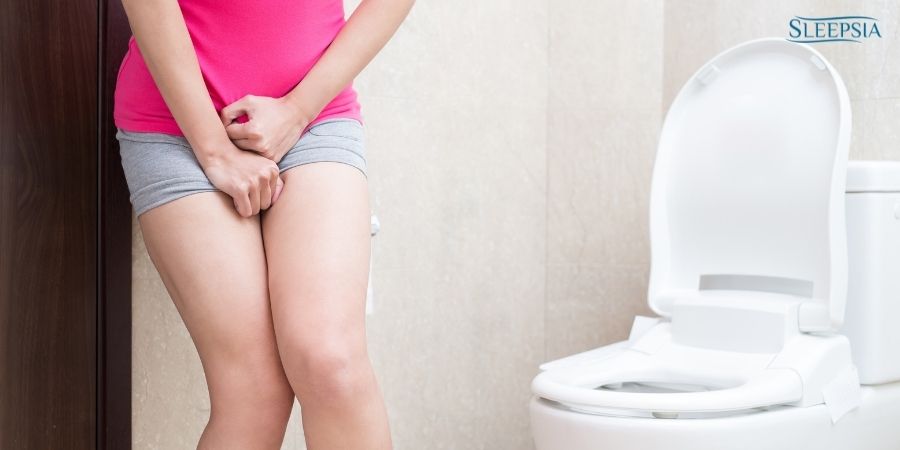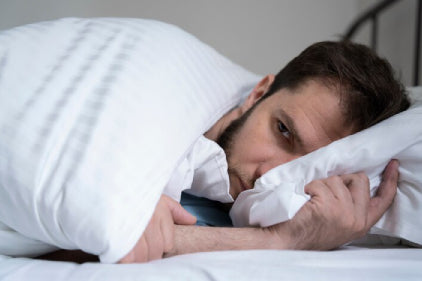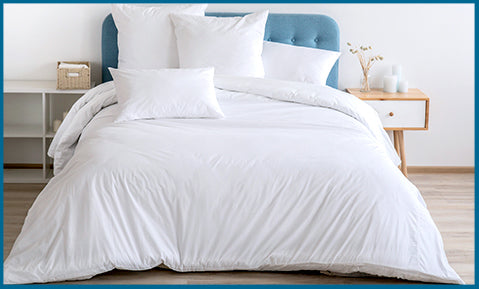
Too much urination at night is defined as nocturia. People with nocturia often wake up regularly at night to urinate. Various underlying health issues can cause nocturia, and identifying the trigger is the primary purpose of your healthcare provider.
Once the underlying health condition is identified, you can begin the treatment. Until then, nocturia can negatively affect a person’s quality of life.
In this article, you’ll learn more about nocturia and ways to prevent and manage it.

Causes of Nocturia
Causes of nocturia are very diverse: from bad lifestyle choices to serious underlying medical conditions. Although most common in adults above the age of 80, nocturia can affect people of any age.
According to studies, it may affect up to 80 percent of elderly people. And the occurrence rate of nocturia is higher in minority communities such as blacks and hispanics.
Conditions that can Cause Nocturia Include:
- Menopause
- Obesity
- Urinary tract infections
- Bladder infections
- Diabetes
- Poor kidney function
- Hypercalcemia (excessive calcium in the blood)
- Certain types of cancers
Diuretics, such as alcohol and drinks containing caffeine, can cause nocturia.
Some rare medical conditions may cause nocturia. Since so many varied causes exist, you should consult a doctor and get a complete diagnosis for nocturia.
Diagnosis of Nocturia
To prevent you from waking up, your body tries hard to create less urine during the night.
So if you’re waking up more than once every night to urinate, then you are experiencing nocturia. And as you have to wake up regularly, your sleep gets interrupted, leading to excessive daytime drowsiness.
As the symptoms of nocturia are similar, your doctor will prescribe several tests to identify the underlying medical condition.
Questions that doctors ask may include:
- How many times do you have to wake up to urinate?
- Is the urine more concentrated during the night?
- Do you have any other symptoms that are noteworthy?
- Did you have any recent infections?
- Do you also have incontinence (loss of bladder control)?
Here are a few tests that your doctor may prescribe:
- Blood sugar test
- Blood urea test
- Fluid deprivation test
- Urine culture samples
An ultrasound may be performed if any one of stones, cysts, or an enlarged prostate is suspected.
Urinary Incontinence
In rare cases, people with nocturia may suffer from a loss of bladder control, which leads to involuntary urination. This can happen because of nervous system disorders or weakened control over sphincter muscles.
More common in females than in males, incontinence may be treated with medications or medical devices.
Overactive bladder (OAB)
Causing a sudden urge to urinate, overactive bladder (OAB) may lead to not only nocturia but also incontinence. Because of its unpredictability, overactive bladder may be difficult to control and can affect a person’s quality of life.
However, several treatments ranging from physical therapy to surgery are available.
Treatment for Nocturia
Treatment for nocturia depends on the underlying conditions that’s causing it in the first place.
For instance, nocturia caused by bacterial infection is treated with antibiotics. For serious health conditions, such as cancer or heart failure, your doctor may prescribe surgery and an extensive treatment plan.
To control and relieve the symptoms, your doctor may prescribe:
- Antidiuretics: medications that reduce the amount of urine produced by the body
- Antimuscarinics: medications which reduce bladder muscle spasms to ameliorate the symptoms of incontinence, a loss of bladder control.
- Anticholinergics: medications that block the action of acetylcholine, a neurotransmitter, and inhibit involuntary muscle movements caused by nerve impulses.
In some cases, nocturia may result from unhealthy lifestyle choices. Simply inculcating good habits into your life may cure the condition for you.
How to Prevent Nocturia?
You can take a few steps to prevent and manage nocturia, steps including:
- Not hydrating 2-4 hours before heading to bed
- Avoiding diuretics, such as alcohol and caffeine
- Urinating before going to bed
- Avoiding foods that irritate the bladder (chocolate, acidic and spicy foods)
You may also try Kegel exercises, which improve the strength of pelvic muscles. These exercises are generally prescribed to people with bladder and bowel problems and to pregnant women.
How to Manage Symptoms of Nocturia?

Even though you may manage symptoms of nocturia, it is essential to get a diagnosis from a doctor, as nocturia may imply several underlying health conditions, some of which are life threatening.
You can make lifestyle changes that reduce urine production, lifestyle changes that include:
- Avoiding intake of fluid 2-4 hours before sleep
- Maintaining a healthy sleep schedule
- Following good sleep hygiene
- Avoiding diuretics 6 hours before bed
- Exercising regularly, if possible
As nocturia can cause significant problems with sleep, you must focus on creating an ideal sleep environment.
Conclusion
Nocturia, although embarrassing, is a serious nuisance that exasperates the patient. It disturbs sleep, leading to daytime drowsiness.
However, there are medications available to relieve symptoms of nocturia. And once the underlying health condition is identified, nocturia can generally be treated quite easily.
So get a diagnosis from your doctor as soon as possible.












